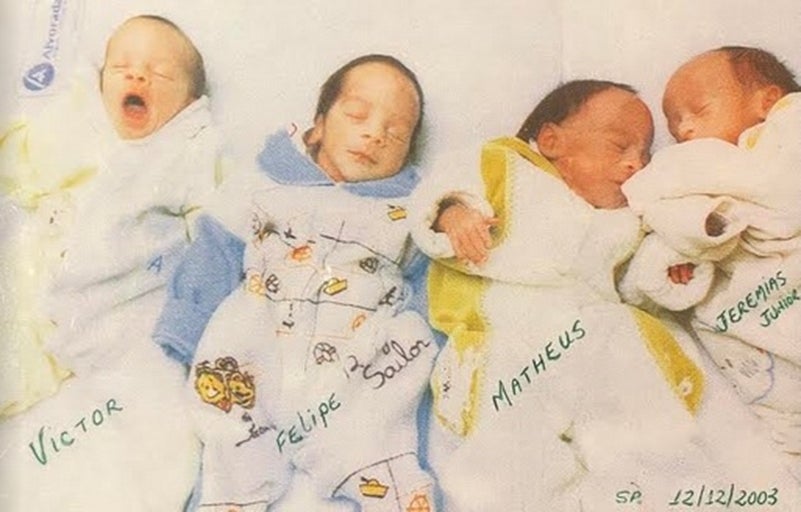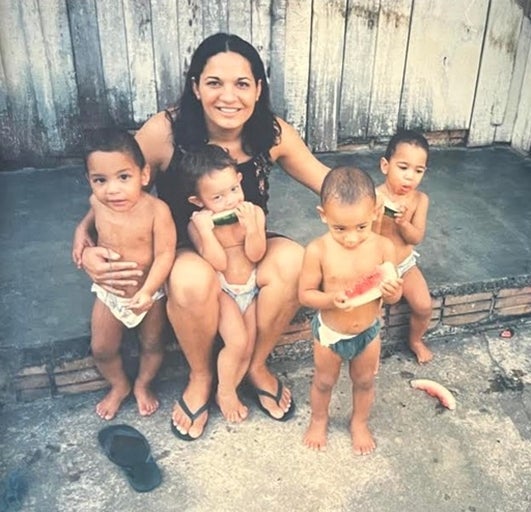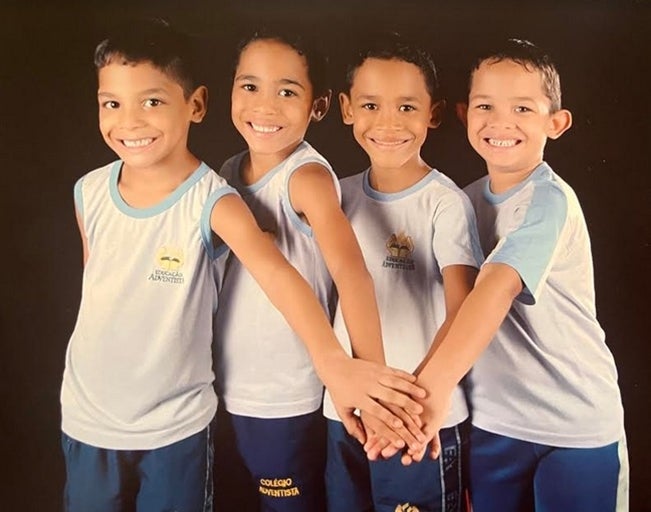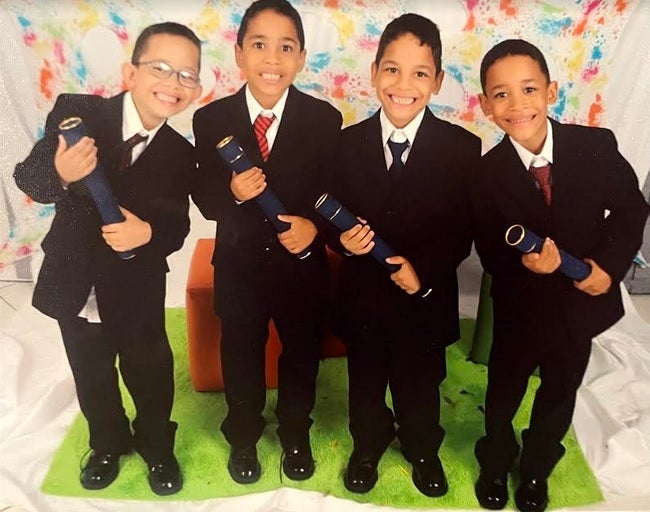If three is a crowd, four is likely to be a bit overwhelming at times. Fraternal quadruplets Felipe, Jeremias, Matheus and Victor de Castro Lopes Francisco would probably agree. Growing up, the brothers had their share of sibling squabbles — on and off the soccer field.
But when they made the move from their native country of Brazil to Chandler, Arizona, at the age of 13, they felt lucky to have each other. Whether they were missing friends and family back home or struggling to adapt to their new surroundings — which also meant mastering a new language fast enough to keep up at school — they knew they could lean on one another.
This fall, that will still be true when all four embark on the next chapter of their academic journeys at Arizona State University. Jeremias, Matheus and Victor are all direct admits to the Edson College of Nursing and Health Innovation, and Felipe will be pursuing a degree in civil engineering at the Ira A. Fulton Schools of Engineering.
“Since I was a child, I have always been fascinated with different buildings, roads and architecture,” Felipe said about his decision to be the odd one out. All of them, though, are looking forward to meeting new people, making friends and enjoying all that the college experience has to offer.
“Our cousin went to ASU and she loved it,” Victor said. “She told us about it so we wanted to learn more, and we really like everything about it: the campus, the programs and the diversity of people.”
“It’s also close to home and it is one of the greatest universities for preparing students for employment,” Matheus added.
As children in São Paulo, the brothers sometimes fought over shared birthday gifts or bristled at being mistaken for one another. But over the years, they learned to value their unique closeness, even when they had disagreements.
“Sometimes we fight, like any other siblings, but we got along pretty well,” Jeremias said. “Our fights are more like discussions.”
When the quadruplets moved to Arizona in December 2016, they spoke only Portuguese. Once they enrolled in Chandler High School, the race was on to learn English. It’s fair to say they succeeded, and with flying colors: Both Felipe and Matheus participated in the National Honor Society and all four rarely received anything but A's, a feat that was rewarded when each received a New American University Scholarship to attend ASU.
As first-generation college students, it’s not something they take lightly.
“My parents were very happy that we got into ASU because they always wanted us to pursue college,” Felipe said. “They were thrilled to hear that all of us got into ASU.”
While Felipe will be spending most of his time on ASU’s Tempe campus, studying to fulfill his dream of one day contributing to a stronger, more innovative American infrastructure, Victor, Matheus and Jeremias will be putting their noses to the grindstone at the Downtown Phoenix campus, indulging their shared desire to help people by pursuing careers in the health care field — and engaging in a little friendly competition every now and then.
“We brothers are always striving to outperform one another to be the best,” Matheus said. “But it’s enjoyable because we have each other’s backs and support one another’s decisions.”
Top photo: The de Castro Lopes Francisco quadruplets, (left to right) Felipe, Jeremias, Matheus and (seated) Victor. Photo by Charlie Leight/ASU News
More Science and technology
Statewide initiative to speed transfer of ASU lab research to marketplace
A new initiative will help speed the time it takes for groundbreaking biomedical research at Arizona’s three public universities to be transformed into devices, drugs and therapies that help people.…

ASU research seeks solutions to challenges faced by middle-aged adults
Adults in midlife comprise a large percentage of the country’s population — 24 percent of Arizonans are between 45 and 65 years old — and they also make up the majority of the American workforce…
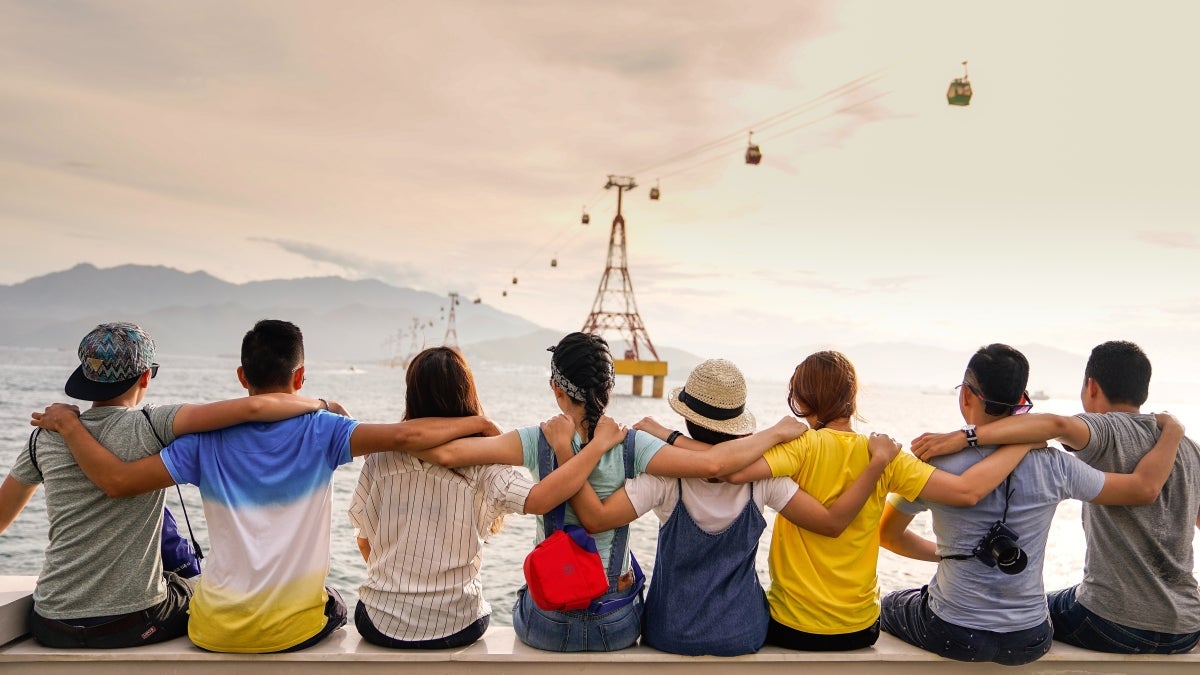
ASU research helps prevent substance abuse, mental health problems and more
Smoking rates among teenagers today are much lower than they were a generation ago, decreasing from 36% in the late 1990s to 9% today. The rates of alcohol consumption among underage drinkers…

